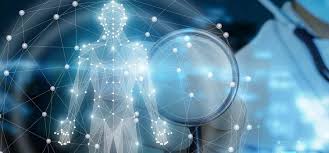In the ever-evolving landscape of artificial intelligence (AI), a groundbreaking revolution is underway: the latest machine learning model has surpassed human experts in medical diagnosis, marking a significant milestone in the intersection of technology and healthcare. This remarkable advancement holds profound implications for the future of medicine, offering unprecedented accuracy and efficiency in disease detection and treatment. Let’s delve into the details of this transformative AI breakthrough and its implications for the medical field.
Understanding the Role of AI in Medical Diagnosis
The Evolution of Machine Learning
Machine learning algorithms have revolutionized various industries by enabling computers to learn from data and make predictions or decisions without explicit programming. In healthcare, AI-powered systems analyze vast amounts of medical data to assist clinicians in diagnosis, treatment planning, and patient care.
Challenges in Medical Diagnosis
Medical diagnosis is a complex and nuanced process that often requires years of training and experience to master. Clinicians must interpret a multitude of factors, including symptoms, medical history, and diagnostic tests, to accurately identify diseases and formulate treatment plans.
The Breakthrough: AI Outperforms Human Experts
Unprecedented Accuracy
Recent studies have demonstrated that the latest machine learning model, trained on extensive medical datasets, can outperform human experts in various diagnostic tasks. By analyzing patient data with unparalleled speed and precision, AI algorithms can identify patterns and anomalies that may elude human observers.
Improved Efficiency
In addition to accuracy, AI offers significant improvements in efficiency, enabling faster diagnosis and treatment decisions. By automating routine tasks and augmenting clinician workflows, AI systems can streamline healthcare delivery and improve patient outcomes.
Implications for Healthcare
Enhanced Diagnostic Capabilities
The integration of AI into medical practice expands the diagnostic capabilities of healthcare providers, enabling earlier detection of diseases and more personalized treatment approaches. AI algorithms can analyze medical images, genomic data, and electronic health records to uncover hidden insights and inform clinical decision-making.
Reduced Diagnostic Errors
Diagnostic errors are a significant concern in healthcare, contributing to patient harm and medical liability. By leveraging AI for diagnosis, healthcare organizations can mitigate the risk of errors and improve patient safety, ultimately saving lives and reducing healthcare costs.
Challenges and Ethical Considerations
Interpretable AI
One of the key challenges in deploying AI for medical diagnosis is ensuring the interpretability of algorithmic decisions. Clinicians must understand how AI arrives at its conclusions to trust and act upon its recommendations.
Data Privacy and Security
The use of AI in healthcare raises concerns about patient privacy and data security. Safeguarding sensitive medical information is paramount to maintaining patient trust and complying with regulatory requirements.
The emergence of a machine learning model that outperforms human experts in medical diagnosis represents a watershed moment in the application of AI to healthcare. By harnessing the power of data and algorithms, we are poised to revolutionize the practice of medicine, providing more accurate, efficient, and personalized care to patients around the world.




